#tooth infection
Text
Condensing Osteitis: Symptoms, Diagnosis and Management
Focal sclerosing Osteomyelitis, also known as Condensing Osteitis, is an infection of the tissues around the root, or a periapical inflammatory disease. This is not a usual situation.
Here's some vital information to help you understand the fundamental features, symptoms, diagnosis, and treatment of this unusual tooth issue.

What is it?
The tooth consists of two parts: the crown and the root. The crown is the visible component of the tooth inside the mouth, whereas the root is lodged inside the jaw bone. The periapical area refers to the area surrounding the apex or root tips. Condensing osteitis is an inflammatory illness affecting the periapical area. It is typically regarded as an inflammatory trigger.
Symptoms
It is usually symptomless with only intermittent episodes of discomfort, therefore your endodontist can identify it via an x-ray.
Condensing osteitis is most common in young people, however it can also occur in other age groups.
This disorder is more common in the molar region, but it can also occur in other tooth regions.
Diagnosis and Management
When condensing osteitis is detected, the first and most important action is to consult an endodontist. The care begins with a thorough evaluation of the affected tooth.
The endodontist will examine the pulp tissue of the tooth for vitality. The pulp tissue is the tooth's internal soft tissue, which contains nerves and blood vessels and helps to keep the tooth alive by providing sustenance.
This can be accomplished using a variety of pulp vitality testing procedures. The choice of test is determined on the patient's major complaint.
If the pulp contains necrosis or dead tissue, or if the inflammation is severe, the tooth must be extracted as it cannot be saved.
Prognosis
To your surprise, if the bone produced as a result of infection is not producing symptoms or discomfort, there is no need for treatment and the tooth can be left as is.
It has been discovered that such teeth remain normal and can work normally for years without any problems.
However, remember that a periodic checkup is required so that your endodontist can check for changes using x-rays. If necessary, the treatment can be performed. When the problematic tooth is taken, the socket left behind is the area of condensing osteitis of the jaw, and it can be left that way. It is painless and referred to as osteosclerosis of the bone scar.
For more information read the full blog here : https://www.orisdentalcenter.ae/blog/condensing-osteitis-symptoms-diagnosis-and-management/
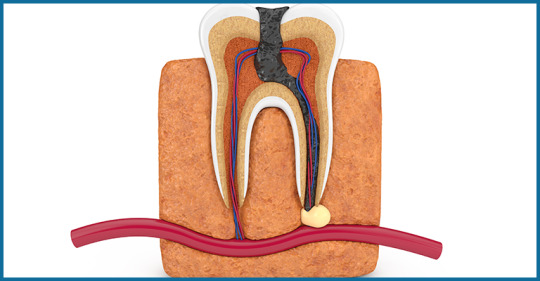
#condensing osteitis#sclerosing osteitis#garre osteomyelitis#garre's sclerosing osteomyelitis#Osteomyelitis#osteomyelitis disease#osteomyelitis symptoms#Periodontitis#tooth psin#tooth infection#dental
0 notes
Text
TOOTH INFECTION Get Instant Pain Relief Today - Emergency Dentist Sydney City
Tooth Infection - Emergency Dentist Sydney
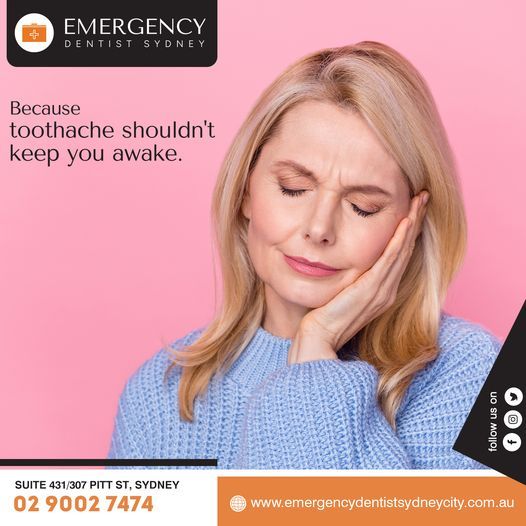
All You Need to Know about
How do you manage a tooth infection?
A tooth infection can occur due to many different reasons. It is most commonly the result of poor oral hygiene, tooth decay, or both of those combined. The most common treatments include removal of the tooth or a root canal treatment depending on the extent of the infection in the teeth.
What would happen if I left the tooth infection alone?
Prolonged infection may lead to the need for a root canal procedure. The root canal is an area located in the roots of your teeth. It is filled with a special nerves that can easily be infected if decay has a chance to build up. The tooth infection may spread to surrounding teeth as well until eventually the entire mouth is in a bad shape. Our dentists here at Smile Concepts will remove this infected pulp and replace it with a special filling. If you make an appointment when the signs start to appear, then there is a good chance we can save the tooth rather than have to extract it.
What are the signs of teeth infection?
The signs of teeth infection include discolouration of the tooth, teeth pain, gum inflammation, gum swelling, gum pimples, sensitive teeth, tender gums, pain when chewing, and bleeding gums. On rare occasions there may be no signs at all which is why it is important to get a check-up every so often.
How long should I wait before the tooth infection is treated?
If a teeth infection are caught early on, then antibiotics will be prescribed to you in order to get rid of it before any extractions are made if necessary.
Give us a call today to schedule an appointment. We’ll check for any tooth infection or multiple teeth infection and let you know what options you have.
At Emergency Dentist Sydney, we understand that dental emergencies can be painful, stressful, and overwhelming. When you’re in need of urgent dental care, you can trust our experienced and compassionate team to provide you with the highest-quality treatment in Sydney. We’re committed to helping you find relief from your pain and restoring your smile as quickly and efficiently as possible.
At Emergency Dentist Sydney, our experienced team is prepared to handle a wide range of dental emergencies, including:
Severe toothaches and dental pain
Broken or chipped teeth
Knocked-out teeth
Lost or damaged fillings and crowns
Swollen or infected gums
Oral injuries and traumaNo matter the severity of your dental emergency, our team is here to provide the prompt and professional care you need.
No matter the severity of your dental emergency, our team is here to provide the prompt and professional care you need.
If you’re experiencing a dental emergency in Sydney, North Sydney, Balmain, Darlinghurst, Double Bay, Kirribilli, Lilyfield, Newtown, Paddington, Potts Point, Pyrmont, Redfern, Rozelle, Surry Hills, Glebe, and surrounding suburbs, don’t wait. Call Emergency Dentist Sydney now to schedule an immediate appointment. Our friendly and compassionate team is here to help you find relief from your pain and restore your smile to its former glory. Trust us to be your go-to dental emergency experts in Sydney.
#24 hour dentist darlinghurst#24 hour dentist double bay#24 hour dentist paddington#after hours dentist lilyfield#emergency dentist#teeth infection#tooth infection
0 notes
Text
The significance of teeth goes beyond their primary functions of chewing food and helping us speak. Teeth also play a vital role in our social interactions, contributing significantly to our overall well-being. If you’re struggling with plaque on teeth, a soft-bristled toothbrush is even more important. Plaque is a sticky film of bacteria that forms on teeth and can lead to tooth decay and gum disease if left unchecked.
0 notes
Text
The Adulthood Struggles of Paying All You're Worth
Goddammit. God fucking G-triple-dog dammit. I'm exhausted. Very's have become a very lazy part of my vernacular. See? I just did it again. I'm only writing this as hastily as I am because of the agony I'm in. I'm sure everyone here has grappled with some kind of tooth pain at some point in their lives, but this has wrung me out for all that I'm worth, physically, emotionally, and socially.
Stress is mounting a great deal because of all of the things that are happening at once. I'm overwhelmed and starting a new job quite soon. I've yet to receive my onboarding paperwork, which, in all fairness, I could simply ask for a second time, that's more of a nonissue to the fact that I'm being asked to potentially pay 85% and some change, of my entire life savings, for a dental procedure to clear up an infection that I brought upon myself.
The dentist is a lot like dealing with a toxic, narcissistic mother, in that somehow you will leave it under the impression that everything bad that's happened to you while there, is your fault. Bleeding gums, crooked teeth, an empty wallet, all your fault for not brushing and flossing on time. Perhaps medical anomalies exist, perhaps my mouth is just rotten.
I remember distinctively blogging about my wisdom-teeth surgery when I had it, but this is a different issue, entirely. I'm taking antibiotics for a rather scourge-ridden bacterial infection within one of my teeth-roots. This is going to require, bare minimum, a root-canal. I have never been more grateful for the safety-net of insurance, which has kept me in relatively-good dental health, but I need my regular cleanings. They have to happen uninterrupted from here on out. Every six months like clockwork. I have a dead, throbbing tooth in my face that is trying to heal, but the necrosis-tissue simply won't allow it to happen.
Gross, right? I think it's neat because they're my teeth.
Let me backtrack. This accident happened when I was only nine years old, I had taken a dog-trophy to the mouth (My grandfather's, he raised show-Beagles, we'll talk about this more in a future entry, don't ask about it right now, it's not important.) This trophy's dog-tail, a light metal spraypainted gold, clocked me going a handful of miles per hour, and chipped off the rear 1/3rd of my front left tooth. This had left a ticking timebomb in my mouth that would not detonate until I was reliably, confidently, and purposefully 22 years old. Now, a bacterial infection has rooted in the root, and the only way to open it up is by making a canal.
I'm hurtin' for certain on this one, and have been prescribed antibiotics, which fight the pain and let me sleep, but it's going to be a majority of my life savings with bills to pay. I will be living paycheck to paycheck for a good long while on this, so it's of the upmost importance that I start working somewhere post-haste, and not doing something too physical, so as to not further agitate this morosely-calcified little knot in my gums.
My appointment to get an x-ray isn't for another week and a half, so I pray to whatever fortuitous being out there that this clears up nicely within that timeframe so that I'm not constantly whining to my friends and being a general burden to those around me. I'm only writing this until it's time to take another pill--
Oh look and it's that time again, two minutes past midnight. Mission accomplished. I miss weed...
#writing#blog post#dental#dentistry#infection#tooth infection#tw#vent#sorry for the rant#I'm sorry all I make are rants#tooth hurty#tooth pain#teeth#dental work#x-ray
0 notes
Text
Discover the link between dental health and your immune system. Neglected oral hygiene can lead to bacterial growth, impacting your overall health. Learn how a robust immune system can protect you and get tips for maintaining good oral health. Visit Nuface Dental Implant Center, Best Dental clinic in Jalandhar for expert care.
0 notes
Text
Root Canal Treatment: Saving Your Smile, One Tooth at a Time
What is Root Canal Treatment?
Root canal treatment is a dental procedure designed to remove infected or damaged pulp from the interior of a tooth. The pulp is the innermost part of the tooth, housing nerves, blood vessels, and connective tissue. When the pulp becomes infected or inflamed, it can lead to severe pain, abscess formation, and potentially the loss of the tooth.
Why is Root Canal Treatment Necessary?
Relieve Severe Pain: When the pulp of a tooth becomes infected or inflamed, it can cause excruciating pain. This pain often results from the pressure created by the buildup of bacteria, pus, and debris inside the tooth. Root canal treatment removes the infected pulp, providing immediate relief from pain.
Save the Tooth: Without root canal treatment, an infected tooth will not heal on its own. Left untreated, the infection can spread to surrounding tissues, potentially leading to the formation of an abscess and bone loss. Root canal treatment is often the only way to save the tooth and prevent extraction.
Prevent Further Infection: An untreated infected tooth can become a constant source of infection in the body, as the bacteria can enter the bloodstream and affect overall health. By removing the infected pulp, root canal treatment prevents the infection from spreading.
Preserve Oral Function: Losing a tooth can affect your ability to chew properly and speak clearly. Root canal treatment allows you to retain the tooth's function, maintaining your ability to eat and speak without difficulty.
Maintain Aesthetics: When a tooth is extracted, it leaves a gap in the mouth, which can affect the appearance of your smile. Root canal treatment allows you to keep your natural tooth, preserving the aesthetics of your smile.
Prevent Shifting of Teeth: A missing tooth can lead to neighboring teeth shifting out of position. This can result in bite problems and potentially more dental issues. Root canal treatment helps maintain the alignment of surrounding teeth.
Avoid Costlier Procedures: Extracting a tooth and replacing it with a dental implant or bridge can be more costly and time-consuming than undergoing a root canal. Root canal treatment can often be a more cost-effective solution.
Reduce the Need for Ongoing Dental Work: If a tooth is extracted, it typically requires additional dental work to replace it, such as a bridge or implant. Root canal treatment, when successful, eliminates the need for these additional procedures.
Root canal treatment is a common dental procedure that is generally straightforward and well-tolerated by most patients. Understanding what to expect during and after the procedure can help alleviate any anxiety and ensure a smoother experience. Here's a breakdown of what you can expect and what dentists in Pakenham are providing.
During Root Canal Treatment:
Anesthesia: Before the procedure begins, your dentist or endodontist will administer local anesthesia to numb the affected tooth and the surrounding area. You should not feel any pain during the procedure, but you may feel pressure and vibrations.
Access Opening: The dentist will create a small opening in the crown of the tooth to access the infected or damaged pulp. This step is necessary to reach the inner part of the tooth.
Pulp Removal: Using specialized instruments, the dentist will carefully remove the infected or damaged pulp from the pulp chamber and root canals. This process eliminates the source of pain and infection.
Cleaning and Shaping: The dentist will clean and shape the interior of the tooth to prepare it for filling. This involves removing any remaining debris and disinfecting the space to prevent future infection.
Filling and Sealing: After cleaning, the empty pulp chamber and root canals are filled with a biocompatible material, typically gutta-percha. This material seals the space and prevents bacteria from re-entering. The access opening is then sealed with a temporary or permanent filling.
X-rays: Throughout the procedure, X-rays may be taken to ensure that the entire infected or damaged pulp has been removed and that the filling material is properly placed.
Recovery and Discharge: After the procedure, you may need some time to recover from the local anesthesia. Once you are alert and the dentist is satisfied with the results, you will be discharged with post-operative care instructions.
After Root Canal Treatment:
Soreness and Discomfort: It's normal to experience some soreness and discomfort for a few days after the procedure. Over-the-counter pain relievers, as recommended by your dentist, can help manage this discomfort.
Avoid Chewing on the Treated Tooth: While the tooth is healing, it's advisable to avoid chewing on the treated tooth until a permanent restoration (typically a crown) is placed. This helps prevent further damage.
Follow-Up Appointments: You will typically have one or more follow-up appointments with your dentist to monitor the healing process and ensure the tooth remains healthy.
Crown Placement: In many cases, a tooth that has undergone a root canal will require a crown to restore its strength and protect it from further damage. This crown is usually placed a few weeks after the root canal to allow for healing.
Improved Comfort: Most patients experience relief from the intense pain they felt before the root canal. The treated tooth should no longer cause severe discomfort.
Long-Term Success: A properly performed root canal can save your tooth, allowing it to function normally for many years.
Oral Hygiene: Maintain good oral hygiene practices, including regular brushing and flossing, to prevent future dental issues.
Remember that everyone's experience may vary, and it's essential to follow your dentist's post-operative instructions closely. If you have any concerns or experience severe pain or unusual symptoms after a root canal, it's important to contact your dentist promptly for further evaluation and guidance.
All the above procedures are followed at dental clinic in Pakenham
0 notes
Text
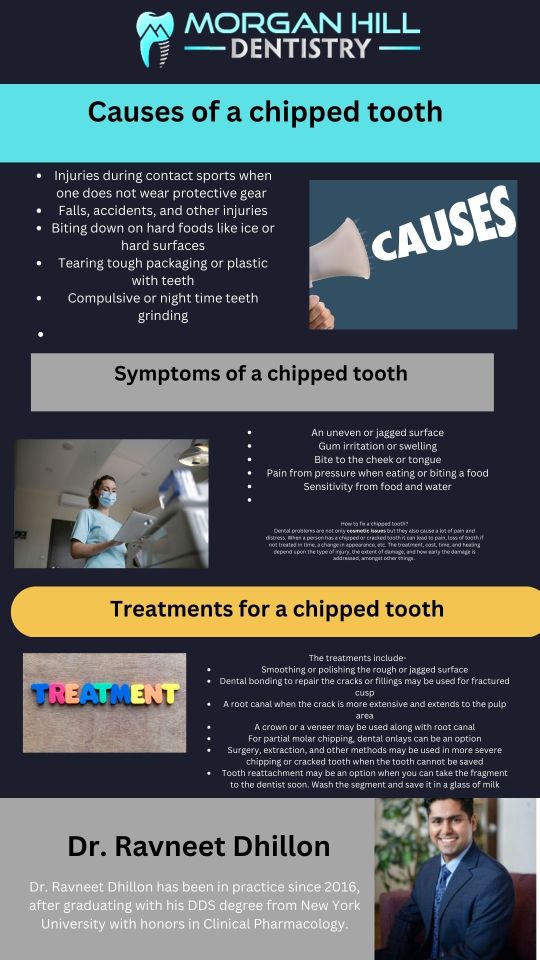
It is important to understand how the chipping occurs and when you need a chipped tooth repair. Although tooth enamel is amongst the strongest substances, it can be damaged due to a number of reasons. Chips and cracks are cosmetic as well as health issue. There can be damage to the roots of the teeth, infection, pain, and swelling. Read more.
#chipped tooth#dentistry#dental treatment#dentalcare#dental implants#morganhill dentist#tooth infection
0 notes
Link
Tooth abscesses are not life-threatening but the longer you wait for the treatment, the more severe the pain can be.
0 notes
Link
Cavities can turn severe and proceed further to cause more harm to your tooth. Additionally, if left untreated, it can lead to a Tooth Infection, which can be very painful. Count on Capitol Endodontics whether you need excellent patient care or have an emergency.
0 notes
Text
Been taking some antibiotics for a tooth infection they haven't worked I've gotta go pick up some new antibiotics later but like the ones I was on have made me so unwell :(
0 notes
Text
How To Get Rid Of A Tooth Infection Without Antibiotics
How To Get Rid Of A Tooth Infection Without Antibiotics
#toothdecay #tooth #toothinfection #cavity
A tooth infection invades the tissues around the root of the tooth, and it can cause a pocket of pus to form at the root’s tip. A dental or tooth abscess is caused by a tooth infection. A tooth abscess left untreated will spread into the inner walls of the root and can cause severe pain.
So basically, in order to prevent tooth abscesses, you will have to prevent tooth infection.
How Can You…
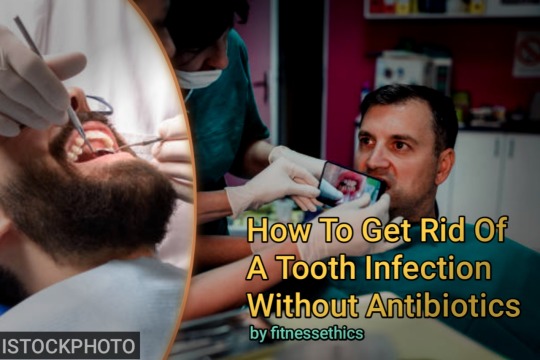
View On WordPress
0 notes
Text
Cavity Protection with Toothpaste Massage Method
Oris Dental Center - Best Dental Clinic in Dubai
People who are predisposed to cavities will gladly accept additional safeguards. A new approach of cavity control that uses toothpaste to massage the teeth and the adjacent gum layer has been found to be four times more effective. Here are some more specifics on how to massage your teeth and what paste to use.
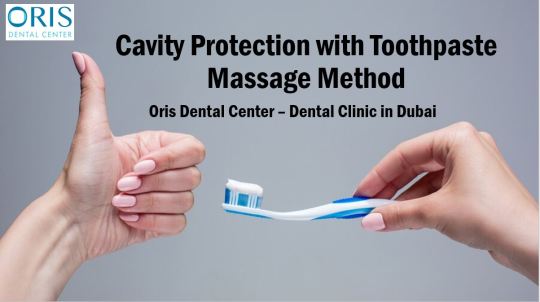
Research backing Toothpaste Massage
The toothpaste selected was a "high-fluoride" toothpaste. The subjects were those who were predisposed to dental decay or cavities.
They used the high-fluoride toothbrush three times per day. They kept the action going for a few days to assess the results. Later, the effective protection provided by high-fluoride toothpaste was investigated.
The volunteers then performed another round of exercises. They now brushed twice a day (morning and evening) and replaced the third brushing with the new massaging with toothpaste procedure.
Massaging with Toothpaste – Steps Involved
Take a pea-sized amount of toothpaste on your finger.
With your finger, apply a layer of high-fluoride toothpaste to your teeth.
Rub your finger gently on the upper layer of the teeth.
You could also use toothpaste to quote the inner layer of the teeth.
Do not immediately rinse the mouth with water. You might leave it for 10-15 minutes and then rinse with water.
You can massage the gums as well as the teeth. Regular gum massage is related to better oral care and is a practice that strengthens the gums.
Conclusion
The most important thing to remember is that cleaning your teeth twice a day (morning and evening) using fluoride toothpaste is required. The dentists at Oris Dental Center do not propose completely replacing brushing with the new toothpaste massaging approach. Similarly, flossing once or twice a day is an essential step for maintaining adequate oral hygiene. So the new toothpaste massaging technique is simply an additional operation that can provide more cavity protection.
For more information read the full blog by tapping the following link : https://www.orisdentalcenter.ae/blog/cavity-protection-with-toothpaste-massage-method/
#cavity#cavity protection#decay#tooth decay#best dental clinic in dubai#dental clinic in dubai#24-hour dental clinic dubai#urgent care dental clinic in dubai#dentist in umm suqeim#dental health#dentist in dubai#dental care#dental emergency in dubai#emergency dental clinic dubai#tooth infection
0 notes
Text
Get Instant Pain Relief Today - Tooth Infection - Emergency Dentist Sydney
Tooth Infection - Emergency Dentist Sydney

We will get you out of emergency dentist will get you out of tooth Infection today. Contact us on 9283 7220 to be attended to immediately.
How do you manage a tooth infection?
A tooth infection can occur due to many different reasons. It is most commonly the result of poor oral hygiene, tooth decay, or both of those combined. The most common treatments include removal of the tooth or a root canal treatment depending on the extent of the infection in the teeth.
What would happen if I left the tooth infection alone?
Prolonged infection may lead to the need for a root canal procedure. The root canal is an area located in the roots of your teeth. It is filled with a special nerves that can easily be infected if decay has a chance to build up. The tooth infection may spread to surrounding teeth as well until eventually the entire mouth is in a bad shape. Our dentists here at Smile Concepts will remove this infected pulp and replace it with a special filling. If you make an appointment when the signs start to appear, then there is a good chance we can save the tooth rather than have to extract it.
What are the signs of teeth infection?
The signs of teeth infection include discolouration of the tooth, teeth pain, gum inflammation, gum swelling, gum pimples, sensitive teeth, tender gums, pain when chewing, and bleeding gums. On rare occasions there may be no signs at all which is why it is important to get a check-up every so often.
How long should I wait before the tooth infection is treated?
If a teeth infection are caught early on, then antibiotics will be prescribed to you in order to get rid of it before any extractions are made if necessary.
Give us a call today to schedule an appointment. We’ll check for any tooth infection or multiple teeth infection and let you know what options you have.
We treat after hour dental emergencies: Dentist available 24 hours. Call us now to have instant pain relief and get treated by emergency after hour dentist in Sydney CBD.
Get instant pain relief with our 24 Hours Emergency Dentist in Sydney, North Sydney, Balmain, Darlinghurst, Double Bay, Kirribilli, Lilyfield, Newtown, Paddington, Potts Point, Pyrmont, Redfern, Rozelle, Surry Hills, Glebe, and surrounding suburbs.
#24 Hours Emergency Dentist in Sydney#Dentist available 24 hours#emergency dentist#teeth infection#tooth infection
0 notes
Video
Multiple factors cause teeth to become dull and lose their bright, white sparkle.
Certain foods can stain your enamel, which is the outermost layer of your teeth. Additionally, plaque buildup on your teeth can cause them to look yellow.
Tooth Infection can usually be treated with regular cleaning and whitening remedies.
0 notes
Note
Wee teuton and livonia (latvia).....

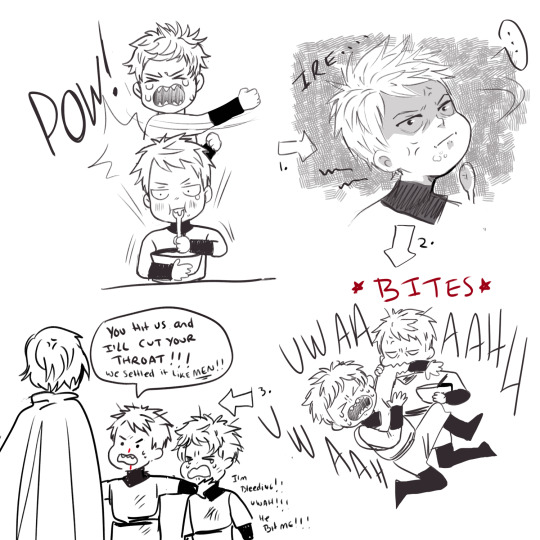
Two kids you'd think would fine together in a "they'll balance each other out!" way but it turns out they personality clash like crazy and have to be carefully supervised because teuton drives livonia crazy and makes him act out of his usual character with his selfishness, greed, relentless bullying and aggressive manner.
#aph prussia#hws prussia#hws latvia#hetalia#aph latvia#anyway as an update i got hit with a wisdom tooth infection AND THE FLU at the same time#and it took all my strength from me so#these requests are gonna be me fighting god
155 notes
·
View notes
Text

I’m obsessed with them
#william afton#so I want both of them carnally#mike schmidt#the objects of my desire#michael schmidt#five nights at freddy's#five nights at freddy’s movie#fnaf#fnaf movie#and I’m sorry but idk if you’ll ever get a full piece from me#I have a tooth infection rn#so I have to rest and stuff but I just wanna draw and cosplay fnaf so bad 😭#ej’s art
167 notes
·
View notes